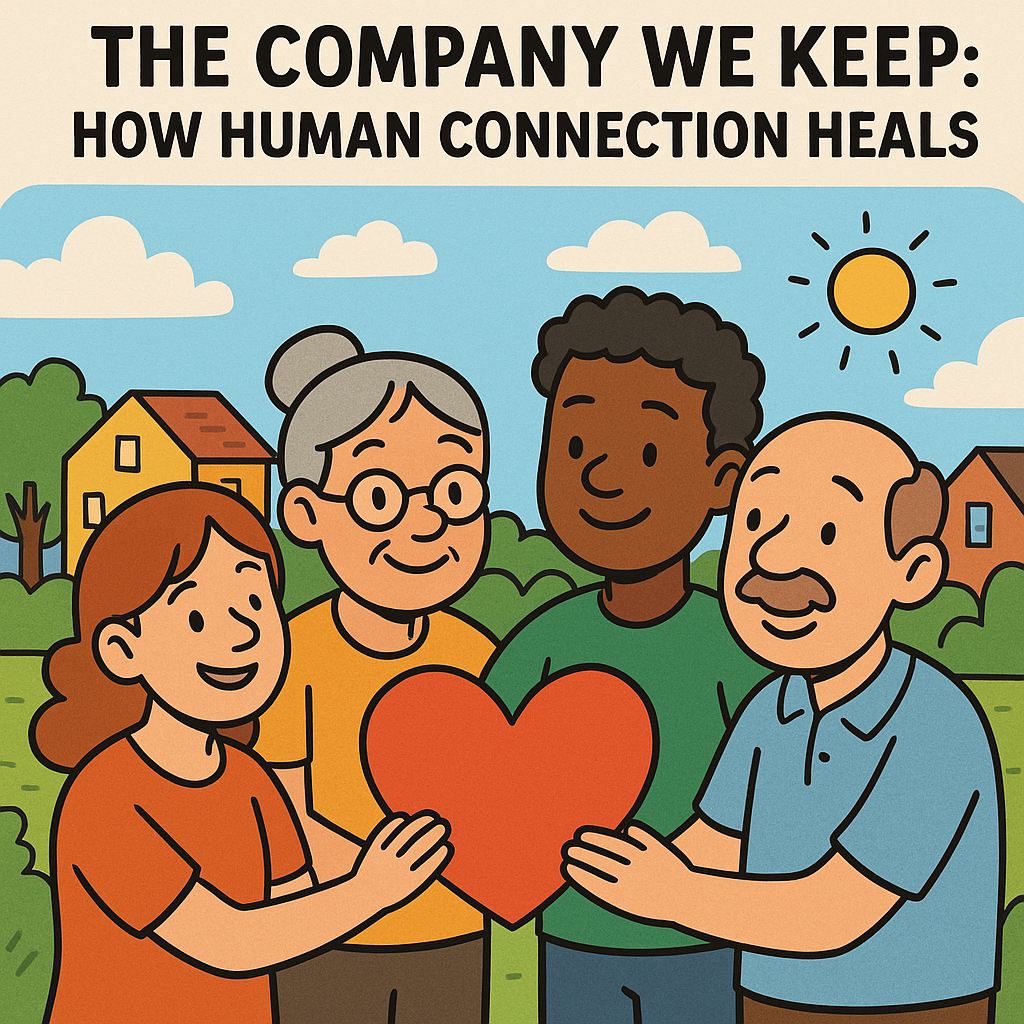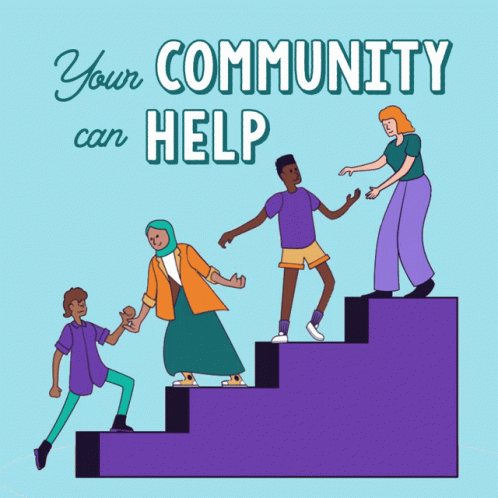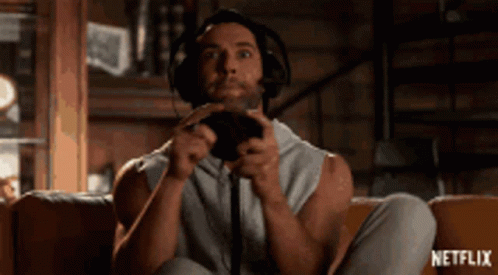🤝 The Company We Keep: How Human Connection Heals

Health & Sciences | The Varrock Street Journal
Good morning, readers! What makes a person healthy? Diet, exercise, sleep—sure. But there’s another factor just as essential that often gets overlooked: community.
We’re not talking just about your doctor or your gym instructor. We mean your neighbors, your coworkers, your book club, the people you laugh with, eat with, and confide in. The kind of people who knock on your door when you're sick—or better yet, who know something's wrong before you do.
This week, we explore a growing body of research that reveals a profound truth: humans are wired for connection, and that connection doesn’t just make life better—it makes it longer, healthier, and more resilient.

🏘️ A Heartfelt Neighborhood
Let’s start on a quiet residential street. Researchers at the University of Michigan found that people over 50 who described their neighborhood as friendly, safe, and trusting were 67% less likely to suffer a heart attack over a four-year period. Not because they ate more vegetables or ran marathons—but because they felt like they belonged.
The presence of a supportive community buffered them from stress, loneliness, and inflammation—the silent killers of modern life.
👉 Read more here
🧑🤝🧑 The Science of Being Seen
Psychologist Sheldon Cohen calls this the “buffering hypothesis”—the idea that social connection reduces the physiological damage of stress. According to his decades of research, having even a small but dependable support system can improve immune function, reduce depression, and lower the risk of chronic disease.
It's not just how many friends you have—it’s whether they show up when it matters.
🌍 Beyond the Church Pew
For years, studies have shown that church attendance correlates with better health outcomes, from lower rates of depression to longer lifespans. But what if the magic wasn’t in the sermon—but in the community?
That same effect is being found in non-religious spaces too:
- Care Groups in developing countries, where volunteers teach mothers basic health practices, have dramatically reduced infant mortality.
- Online wellness groups and neighborhood mutual aid projects have become lifelines for mental health, especially during and after the pandemic.
- Even book clubs and hobby groups offer psychological protection against isolation, especially among older adults.
What all of these spaces share is mutual presence, shared purpose, and belonging.
👉 Learn more about Care Groups
📱 Connection in the Digital Age
But what about the digital world? Can virtual friends help us in real life?
Surprisingly—yes. A 2021 study found that core online friendships—those with regular, meaningful interaction—can protect against depression, especially in people who struggle to connect offline. However, casual digital connections or “scrolling relationships” didn’t offer the same benefit.
Another study from NetCARE found that the structure of our social networks, even online, can predict outcomes like stress, happiness, and self-assessed health with striking accuracy.
👉 Online ties & depression 👉 Social structure & wellness

🧠 Why This Matters
In an age of rising loneliness and screen time, we often forget that we're not meant to do life alone. Connection isn’t a bonus—it’s a biological need. Whether it’s a text from a friend, a knock from a neighbor, or a shared meal after a long day, these moments change our bodies and our brains.
And the science agrees: community heals.
🌟 Spotlight on the Future
As researchers and healthcare professionals look beyond traditional medicine, the future of health may include:
- “Social prescriptions”: Doctors prescribing community-based activities for depression and isolation
- Urban design for mental health: Parks, walkable streets, and communal spaces as public health tools
- AI-powered wellness apps that help foster deeper, not just more, connections
- Expanded public health metrics that track not just disease but disconnection
😲 Did You Know?
- Loneliness is as deadly as smoking 15 cigarettes a day, according to the U.S. Surgeon General.
- People with strong social networks are 50% more likely to survive life-threatening illnesses.
- In communities with strong bonds, even crime rates and emergency room visits are lower.
🧠 Reflection Questions
- What does “community” mean to you—and where do you find it?
- How can we build more inclusive spaces where people feel they belong?
- Should access to community be considered a part of public health?
📚 References (APA Format)
Cohen, S., & Wills, T. A. (1985). Stress, social support, and the buffering hypothesis. Psychological Bulletin, 98(2), 310–357.
Dokuka, S., Sivak, E., & Smirnov, I. (2021). Core but not peripheral online social ties are a protective factor against depression. arXiv preprint arXiv:2111.15070.
Lin, S., Faust, L., Robles-Granda, P., & Chawla, N. V. (2018). Social Network Structure is Predictive of Health and Wellness. arXiv preprint arXiv:1809.00029.
University of Michigan. (2014). Having Good Neighbors Could Reduce Heart Attacks in the Over-50s. Time. https://time.com/3142543/heart-disease-risk-neighborhood-university-of-michigan/
Wikipedia contributors. (2024). Care Group Approach. Wikipedia. https://en.wikipedia.org/wiki/Care_Group_Approach
👋 Final Thoughts
The science is clear—and ancient wisdom already knew it: we heal best in the presence of others. So this week, call a friend, join a group, or simply say hello to your neighbor. Your heart—and your health—will thank you.
📲 Stay connected with us:
- Instagram: @thevarrockstreetjournal
- TikTok: @varrock.street.jo
